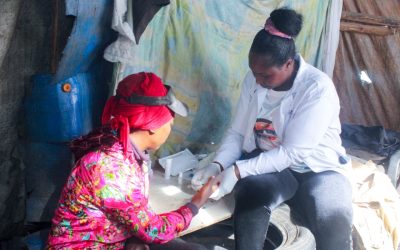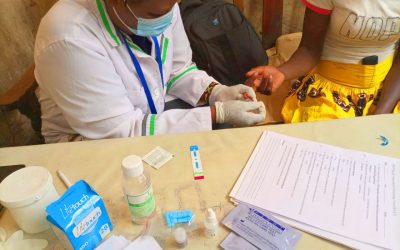21ST FEBRUARY 2021—- It is February, and for many, they would love to call it the month of love because, on 14th February, the world marks Valentine’s Day. For most people, it is a day spent celebrating romance. But for sex workers, Valentine’s Day tends to be the opposite.
Jessica (not her real name), is a 38-year-old sex worker in Nairobi. She says that, contrary to what people might think, February 14th tends to be rather quiet for workers in the sex trade: her clients often see her on the days surrounding Valentine’s Day — but rarely the day of — because people are often busy with their partners. They also don’t always have the extra cash, especially now that the effects of Covid-19 restrictions are felt by almost everyone in the economic sector.
“I don’t celebrate Valentine’s Day. I’m all by myself,” Jessica says. “I bought my son a pair of shoes, my daughter isn’t so demanding, chocolate and candy made her happy and that’s about it.” I didn’t go to my hotspot because I was sure I wasn’t going to get any clients.
And sex workers’ routines on Valentine’s Day aren’t the only common public misconception. Jessica says sex workers’ voices often go unheard as they battle stigma and safety issues.
According to statistical research, as many as 2000 women offer sexual services in Nairobi on daily basis. These services include but are not limited to, street sex work, indoor sex work, brothel work, phone sex, lap dances and pornographic film performances.
For many sex workers, their line of work sparks stigma and social isolation.
“There’s a lot of stigma because sex workers, like other marginalized groups, are sort of relegated to the category of the other,’” says Walda Wanjohi, a Paralegal officer with Bar Hostess Empowerment and Support Programme, (BHESP) an organization that supports the rights of sex workers in Kenya. “There’s fear, long-standing stigma, that links sex work as being wicked, as being dangerous, as being a threat.”
Many of Jessica’s family members, including her mom, have completely cut ties with her because of her job. “Those of us in this industry are seen as societal misfits, my relatives don’t even allow their children to mingle with my children, they are warned not to play with “Watoto wa Malaya”
“They have this preconceived misconception that I have no single element of good virtues,” Jessica explains. “But it’s not like that. I’m so strict and a disciplinarian to my kids. Research shows that most women in the sex work have children. It’s a fact most people disregard, but in fact, many sex workers are mothers, and a good number of them are married.
Despite her solo Valentine’s Days, Jessica says that she has a support network (Chama) of other sex workers with active officeholders who ensure the Chama is active and supports those who have financial difficulties. “I don’t regret being a sex worker because it has enabled me to make my ends meet.
Jessica says most of the time; sex workers are ignored or their voices go unheard. In Nairobi, several organizations work to improve their conditions, like BHESP which aims to fight against stigma, empower and support women, and provide them with the resources and counseling they may need.






